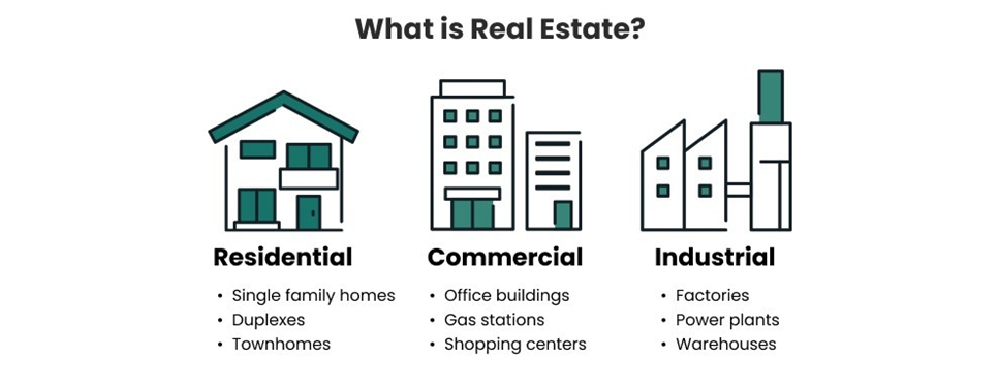There's more than one method to own residential or commercial property, like a home or a plot of land. Those various kinds of residential or commercial property ownership come with other rights, obligations, and legal liabilities.
To that end, it's an excellent concept to understand how you own a residential or commercial property, specifically if you wish to sell it or establish it in the future.
Today, let's take an appearance at charge easy vs. leasehold ownership. We'll information the differences in between these ownership types and the benefits and drawbacks of both ownership designs.

What Is Fee Simple Ownership?
Fee easy ownership, AKA fee easy outright ownership, indicates you totally own a residential or commercial property or plot of land. When you purchase residential or commercial property under cost simple rules, you are provided title or ownership of the residential or commercial property in question.
Title ownership includes ownership of the land and any enhancements to the land in perpetuity. Until you offer the residential or commercial property, you control whatever there is to do with that land, plain and basic.
Under fee simple ownership rules, you have the right to:
- Possess the land and reside on it if you so select
- Use the land in whatever method you want (supplied that your use does not violate regional or federal guidelines, of course)
- Sell the land whenever you like
- Give away or trade the land for other things
- Lease the land to others (as in the case of residential or commercial property rental).
- Pass the land to others upon your death
Most Americans purchase residential or commercial property with cost simple ownership. Many believe this is the only way to purchase residential or commercial property legally - they consider other contacts for surviving on or utilizing residential or commercial property to lease the area.
Benefits of Fee Simple Ownership
There are numerous advantages to cost easy ownership, particularly the fact that a person has the right to utilize or sell the residential or commercial property nevertheless they choose.
They have supreme flexibility in terms of modifying or developing the residential or commercial property and land around it, including:
- Air rights.
- Mineral rights (in case important minerals are discovered on the residential or commercial property in the future).
- Inheritance rights.
- The right to modify any existing structures on the land
Simply put, fee simple ownership is as close as one can get to total ownership of a plot of land with reasonable limitations.
Generally, one can do whatever they like to residential or commercial property they own under fee easy rules provided they do not negatively impact their neighbors or break local laws that everybody else should follow.

In addition to the above advantages, fee simple homeownership might be more accessible if you need to get financing from a bank or other institution. That's since loan underwriters examine single-family homes with cost easy ownership as the best residential or commercial properties.
After all, there aren't as many contingencies to consider with the loan. On average, apartments and other strategy developments with leasehold rights are riskier and more difficult to acquire financing for.
Fee Simple vs. Fee Defeasible Ownership
Fee basic defeasible ownership is similar to basic cost easy ownership or fee easy absolute ownership.
Fee easy defeasible ownership implies that the previous owner cells be offered residential or commercial property to the current owner.
However, the deed for that sale consists of a condition that may limit how the next owner utilizes the land. Some restrictions consist of:
- What developments might be made.
- How the land can be customized.
- Whether the land can be leased
If the conditions in a fee basic defeasible deed are not followed, ownership of the residential or commercial property may go back to the original owner.
For instance, say that a genuine estate seller wishes to offer their residential or commercial property to a willing purchaser. However, the residential or commercial property includes a household burial backyard they wish to be unblemished permanently.
Both parties sign a fee simple defeasible agreement stating that the new owner can not touch the family burial lawn under any situations. If the next owner chooses to bulldoze over the household burial yard, ownership of the residential or commercial property might revert to the initial owner.

Where Is Fee Simple Ownership Common?

In the US, yes. Leasehold ownership is not normal for real estate throughout the US aside from a few city locations or particular states. If you purchase a house in the US, the chances are that it is under fee simple ownership rules.
However, Baltimore, parts of Florida, and states like Hawaii do have more common leasehold ownership agreements.
That is because of different cultural or space-related aspects. For example, there's not a great deal of area in Hawaii, so leasehold ownership is more typical to prevent developments that would adversely affect land accessibility in the future.
What Is Leasehold Ownership?
Leasehold ownership involves developing a leasehold interest between a cost simple landowner, the lessor, and the contracting person or entity called the lessee. Similarly to lending other residential or commercial property, the lessor lends the owned residential or commercial property to the lessee for a certain amount of time and under specific ground rules.
With leasehold ownership, the lessee supplies payment to the lessor. In exchange, they get numerous rights to utilize and delight in the land as they please, likewise to cost basic ownership.
However, leasehold ownership means the lessee doesn't own the residential or commercial property. They, instead, deserve to utilize the residential or commercial property in concern for a certain quantity of time.
Furthermore, leasehold real estate may be transferred to a brand-new owner. But using the land is limited to whatever years are remaining on the initial leasehold lease. After the leasehold contract ends, belongings of the land returns to the lessor through a process called reversion.

Benefits of Leasehold Ownership
While leasehold ownership has some constraints, there are also certain benefits.
For example, leasehold property owners pay less to get leasehold residential or commercial properties. They often require to pay much less than the 20% deposit standard typical homebuyers need to pay if they desire cost simple ownership.
Furthermore, leasehold lessees can sell their leases to other celebrations at any time without getting the residential or commercial property lessor's consent. This is especially typical when dealing with business property.
On top of that, leasehold ownership typically costs proprietors a much smaller sized amount than what they would require to begin buying standard realty.
Long-term leasehold leases can offer constant and budget-friendly rental rates for lessees for a very long time, which is part of why these leases are more common in condensed cities.
In this light, leasehold ownership does provide certain monetary benefits and flexibility that charge easy realty ownership does not.
Where Is Leasehold Ownership Common?
Leasehold ownership is far more typical beyond the US. For example, property buyers will typically come across leaseholds for houses in the British Commonwealth and throughout the United Kingdom.
This is partially due to cultural factors and partially due to enduring customs or municipal laws.
Furthermore, leasehold ownership is more typical for commercial residential or commercial properties, even throughout the US. Most company owner do not wish to purchase realty in a shopping mall, for instance, and need to be accountable for it constantly.
Instead, they want to purchase the residential or commercial property (or lease it), use it for a number of years, and focus more on running their service.
Main Difference Between Fee Simple vs. Leasehold Ownership
The primary distinction in between cost simple and leasehold ownership is residential or commercial property ownership amount of time.
With charge basic ownership, you own the residential or commercial property in eternity. To put it simply, the residential or commercial property is yours unless you sell it, offer it away, or pass away. Nobody can take the residential or commercial property from you unless you break the law or are needed to offer the residential or commercial property to cover debts.
Fee simple ownership is the most common type of residential or commercial property ownership in the US for personal residential or commercial property, like homes, ranches, and farms.
With leasehold ownership, you only have certain ownership-adjacent rights for a set time, generally some years.
Furthermore, you need to pay the lessor or the true owner of the residential or commercial property cash over time, likewise to leasing. This is more common for commercial residential or commercial properties in the US and beyond.
There are a few other differences as well. Notably, you pay rent under leasehold ownership terms, whereas you make mortgage payments under cost basic ownership terms.
Furthermore, cost easy ownership suggests you have outright control of the residential or commercial property and can do whatever you want. Leasehold contracts may have certain constraints on how you can use the residential or commercial property in concern, restricting your possibilities.
Bottom Line
As you can see, fee simple and leasehold ownership are good ways to own residential or commercial property. However, one might be better for your needs or future plans for a given plot of land.
You need to make sure that you purchase residential or commercial property with the appropriate ownership rules before signing on the dotted line of any contract.
Vaster's loan officers can assist. As educated funding experts, we can assist you purchase a home or residential or commercial property for your business and secure the best funding for your requirements and time restrictions.







